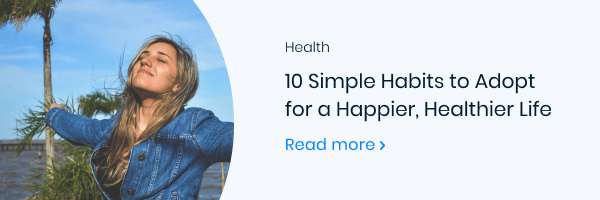We’ve all been there. You’re enjoying yourself one minute and the next, you’re paying for your alcohol overindulgence. Hangovers seem to be the body’s way of reminding us about the hazards of going overboard with the pouring. But that foresight would only have come in handy the night before – it’s the morning after now, you’re in survival mode, and curing that hangover is the only thing on your mind. Luckily, there are a few things you can do to get over a hangover faster.
Symptoms of a Hangover
Physiologically, it’s a group effort; the classic symptoms are awful and often reminiscent of one too many tequila shots. Symptoms of a hangover usually rear their ugly heads when your blood alcohol level drops significantly or is nearing zero, which is why hangovers are generally in full swing the morning after a night of heavy drinking.
- Fatigue and weakness
- Dehydration, which causes excessive thirst and dry mouth
- Headaches and muscle aches
- Nausea, vomiting or stomach pain
- Poor or decreased sleep
- Increased sensitivity to light and sound
- Dizziness, shakiness, or a sense of the room spinning (vertigo)
- Decreased ability to concentrate
- Sweating – due to overproducing sweat glands
- Mood disturbances, such as depression, anxiety and irritability
- Rapid heartbeat
What Causes A Hangover?
But what exactly causes a hangover? And why do some people seem to suffer more than others?
Well, the causes are as “all-over-the-place” as the symptoms. One reason could be that alcohol is metabolized into acetaldehyde – a toxic substance at high levels – however, concentrations rarely reach that level.
Since drinking meddles with our brain activity while we sleep, sleep deprivation may also induce those hangover effects. Alcohol also interferes with the hormones regulating our biological clocks – which could be why hangovers sometimes feel like jet lag, minus the travel perks.
The key ingredient to a hangover seems to be “drinking to intoxication”. Alcohol is the obvious culprit behind a hangover, but it isn’t always the alcohol itself. Its dehydrating effects cause most hangover symptoms. That and nasty chemical by-products, called congeners, give alcoholic drinks their distinctive flavor and cause more intense hangovers. Some common congeners include:
- methanol
- tannins
- acetaldehyde
Congeners are typically found in higher concentrations in darker alcoholic drinks, like bourbon, whiskey, and red wine. While clear liquors, like vodka and gin, have significantly lower levels of congeners, and vodka has almost none at all.

Are Some People More Likely to Get Hangovers?
For some, as little as one drink can provoke a hangover and others seem to be able to get away with a night of heavy drinking without feeling any adverse effects the next day. Why are some people more prone to hangovers? Well, various factors come into play here, and anything from personality types to genetics could influence the way you experience hangovers.
- Personality – some personality traits could influence your hangover symptoms. One study suggests that more shy people are more likely to experience anxiety when hungover.
- Age – results from a 2013 study and a 2015 study suggest that younger people are more likely to experience more severe hangovers.
- Genetics – some people experience flushing, sweating or vomiting after just one drink. Also, a family history of alcoholism affects how your body processes alcohol.
- Gender – evidence suggests that women are more likely than men to experience hangovers.
- Health – one study shows that hangovers are also associated with poorer health.
- Drinking behavior – your drinking behavior also plays a role in the severity of your hangovers, i.e. Smoking cigarettes, using drugs, or staying up later than usual may aggravate hangover symptoms.
Tips to Get Over a Hangover Faster
So, you want to get rid of a hangover quickly? The truth is that time is the only cure for a hangover. But in the meantime, you can do a few things to help yourself feel better.
- Drink plenty of fluids. Drinking fluids may help with the morning-after misery that comes with getting drunk. Also, dehydration and hangovers go hand-in-hand. So, fill up your water bottle and sip water, fruit juice, or herbal tea to rehydrate. How much water you need depends on how much you drank the night before.
- Eat something. Better yet – get some carbohydrates into your system. Drinking lowers blood sugar levels, so in theory, that fatigue and pounding headache could be a result of your brain running on fumes – many times, people forget to eat when they’re drinking. Have a simple snack like toast or crackers or if you can stomach it – have a greasy breakfast!
- Take a pain killer. Preferably not Tylenol – as excessive use can cause liver damage. But a standard over-the-counter (OTC) pain reliever will probably ease your headache. Aspirin and ibuprofen may help but could irritate your stomach.
- Sleep it off. Symptoms are often worse due to a lack of sleep. So, if you can try to sleep in, have a nap later on, just go back to bed and get an extra couple of hours of decent rest – you’ll probably wake up feeling much more like yourself!

What about a little hair of the dog?
No, not actually. Hair of the dog is drinking more to ease the symptoms of a hangover. The notion is that hangovers are a form of alcohol withdrawal, so a drink or two will ease the withdrawal. Is it true? Well, there’s no science to back it up – so it’s best to forego the alcohol and stick to non-alcoholic beverages for a while – just until your immune system gets a chance to recover properly.
How to Prevent A Hangover In The First Place
As with every ailment in life, prevention is better than cure. Here are some things to keep in mind for the next time that you drink.
- Carbo-load before you start drinking. Drinking on an empty stomach is never a good idea. And having no food in your stomach speeds up the body’s alcohol absorption. Eat a carb-rich meal, like rice or pasta, to slow down the rate at which alcohol is absorbed into the bloodstream and also to prevent hangover symptoms.
- Avoid darker-colored alcoholic beverages. Opting for lighter-colored or clear drinks means you consume fewer congeners – remember those pesky things that cause severe hangovers.
- Drink enough water. Fluids make all the difference. So drink enough water throughout the night – try to have a glass between each drink and some more before you go to sleep.
- Sleep. Sleep. Sleep. If you know you’re planning a big sleepless night of drinking, make sure you get enough sleep beforehand.
- Avoid fizzy drinks. Carbonated or fizzy drinks also speed up the rate at which alcohol is absorbed into your bloodstream. So steer clear of the mixed drinks specials.
- Know your limit. If you know your drinking cut-off point, then be sensible when you drink. Take it slow – don’t just drink one drink after another. Pace yourself and stop before you reach the point of no return.
Ultimately, if you want to skip the hangover altogether – you should skip the alcohol. The less alcohol you drink, the less likely you are to have a hangover. Drinking responsibly and in moderation is essential to healthy alcohol consumption. If you are concerned that your alcohol consumption or drinking behavior isn’t healthy, then consider speaking to a professional about getting the help you need. Air Doctor app makes it easy to book a consultation and have a consultation with a medical doctor from the comfort of your home.











